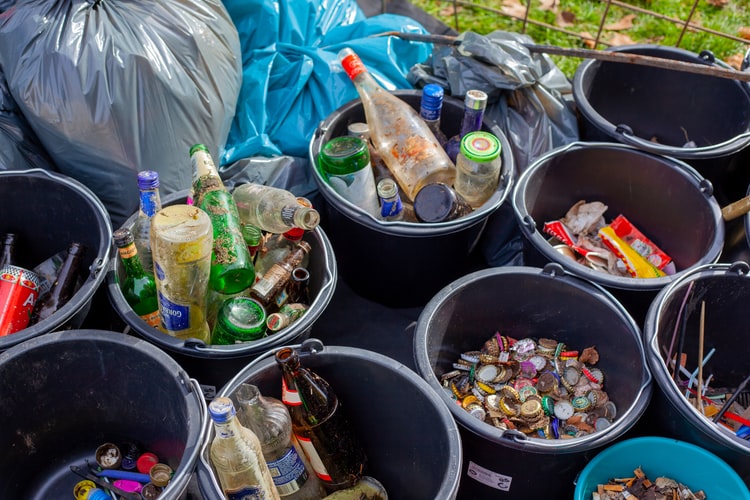Stage 2 Market Research students have taken part in a challenge to help improve recycling rates at student accommodation on campus.
Students were set the challenge by the University’s Sustainability Coordinator, Emily Mason. She explained that recycling rates were lower at the Parkwood village and that contamination of recycling was higher.
Emily asked the students to research attitudes to awareness of recycling among the students living on campus and to put forward recommendations for how to improve the situation.
The challenge is part of Kent Business School’s work to bring awareness of Sustainability to students by embedding the United Nations’ Sustainable Development Goals into the curriculum.
Over several weeks, working in groups, students prepared secondary research from a range of sources as well as conducting face-to-face interviews with focus groups, carrying out online surveys and observations around campus.
As well as their regular seminars and lectures, students were given advice by two industry professionals: Jo Pullen from the Innovation Tribe helped the groups to dig deep into understanding the problem they were tackling, while Amy McManus from AM Marketing lectured on creating an impactful video to showcase their work.
In the final stage of the challenge, students prepared in-depth pitches detailing their research and ideas for increasing sustainability.
A shortlist of pitches was chosen by module convenor Dr Rachel Duffy, which were put forward to Emily and ASPIRE Project Officer, Rebecca Smith, to judge.
Emily said: “The judging was really difficult as all the groups had carried out excellent research and found key data which will be useful to the Sustainability team. The recommendations and insights can also be used to influence future decisions and policy.”
The winning group were Daisy Whitewood, Dylan Osei-Bonsu, Holly Heaps, Jay Newman, Natasha Skeens.
Student, Sophie Freill, from one of the finalist groups said: “What we enjoyed most was hearing different perspectives to the same problem, this really challenged us to delve deeper into the project.
“Being students and researching students, it would have been easy for us to make a lot of assumptions but by carrying out interviews with both students and staff this really pushed us to investigate the issue further.
“If anything this project has shown us that sustainability is not something we should ignore – it’s something all of us can contribute to and we should!”
Find out more about ASPIRE our Accelerator Space for Innovation and Responsible Enterprise

